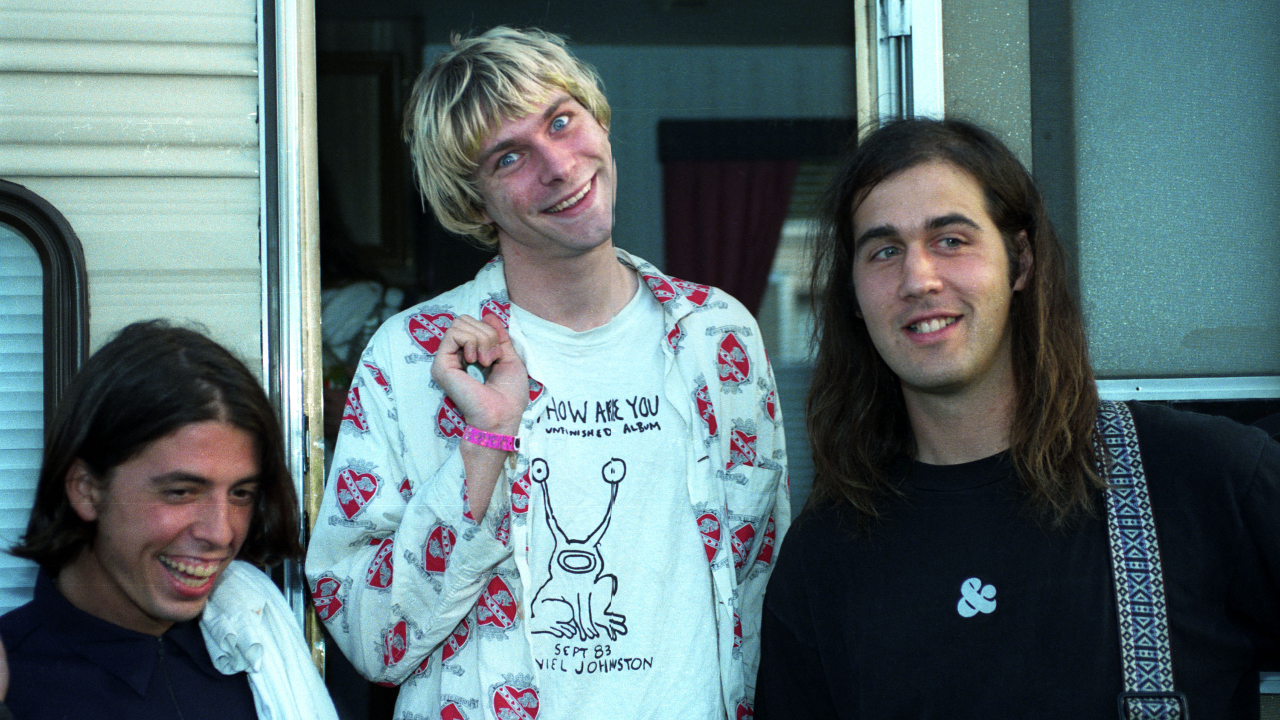The power of positivity: Why Mike Muir will always fight for freedom
As Suicidal Tendencies release their twelfth studio album, frontman and founder Mike Muir looks back at a career of freedom and fighting the power
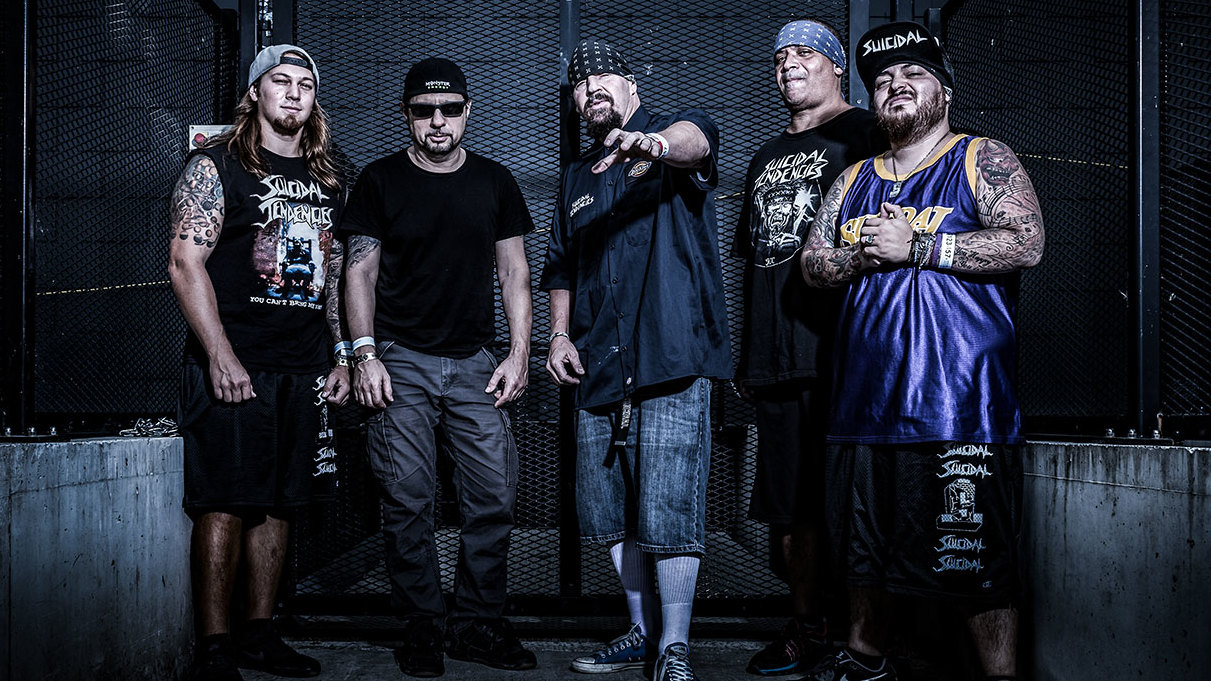
Select the newsletters you’d like to receive. Then, add your email to sign up.
You are now subscribed
Your newsletter sign-up was successful
Want to add more newsletters?

Every Friday
Louder
Louder’s weekly newsletter is jam-packed with the team’s personal highlights from the last seven days, including features, breaking news, reviews and tons of juicy exclusives from the world of alternative music.

Every Friday
Classic Rock
The Classic Rock newsletter is an essential read for the discerning rock fan. Every week we bring you the news, reviews and the very best features and interviews from our extensive archive. Written by rock fans for rock fans.

Every Friday
Metal Hammer
For the last four decades Metal Hammer has been the world’s greatest metal magazine. Created by metalheads for metalheads, ‘Hammer takes you behind the scenes, closer to the action, and nearer to the bands that you love the most.

Every Friday
Prog
The Prog newsletter brings you the very best of Prog Magazine and our website, every Friday. We'll deliver you the very latest news from the Prog universe, informative features and archive material from Prog’s impressive vault.
Suicidal Tendencies are thrash metal royalty. Forming in California in 1980, the godfathers of crossover are beloved the world over by skaters, punks and metalheads alike. The band’s notoriety began not just with their controversial name, but mythological gigs that descended into chaos and their alleged affiliations with gangs. These rumours have subsided with the passing of time and Suicidal’s punk rock past has become the stuff of ‘80s metal folklore, but frontman Mike Muir was there through it all. Forming the band as a teenager, Muir is the only ST member to stick with the band throughout their 36-year career. How has he managed to steer a band mired in controversy through the trials and tribulations of the music industry, and still be a genuine force – even recruiting a member of Slayer to their ranks?
Here, in his own words, Cyko Miko looks back at a life of sticking his finger up to authority and why freedom is worth fighting for.
You were kicked out of school at 10th grade, what happened there?
“You missed out the important part that I was kicked out with straight As. I’m not saying I was smart, just that I was smart enough to tell people what they wanted to hear. I knew not to accept things I didn’t believe were true. There was conflict, which some people thrive on, but when I thought something was wrong, I expressed myself. I think that impressed a lot of people, but to a certain degree at school you’re supposed to sit in line and regurgitate. That led to a couple of conversations with people who felt I didn’t have the right to tell the truth because they had a nice little title and name on their desk – but things like that never impress me. Looking back, I’m pretty proud of myself.”
Was it that rebellious attitude that made you want to form a band?
“The beautiful thing is with punk rock, it didn’t matter that I couldn’t sing, it didn’t matter I couldn’t play guitar, it didn’t matter because it was fun. The simple part of punk rock is not being afraid to do it. It doesn’t matter if you don’t have time, just go ahead and do it. I think you should always try to be the best that you can. Don’t necessarily do what other people do, do what you want to do and try to do different things.
“There’s that old quandary about being an individual, but we found quickly that in punk rock to be an individual you had to dress the same and talk the same. I didn’t buy into that. I got a whole different lesson; it shouldn’t matter how you dress. You can be who you are, be your own thing and be judged by what you do, not how you look.”
Sign up below to get the latest from Metal Hammer, plus exclusive special offers, direct to your inbox!
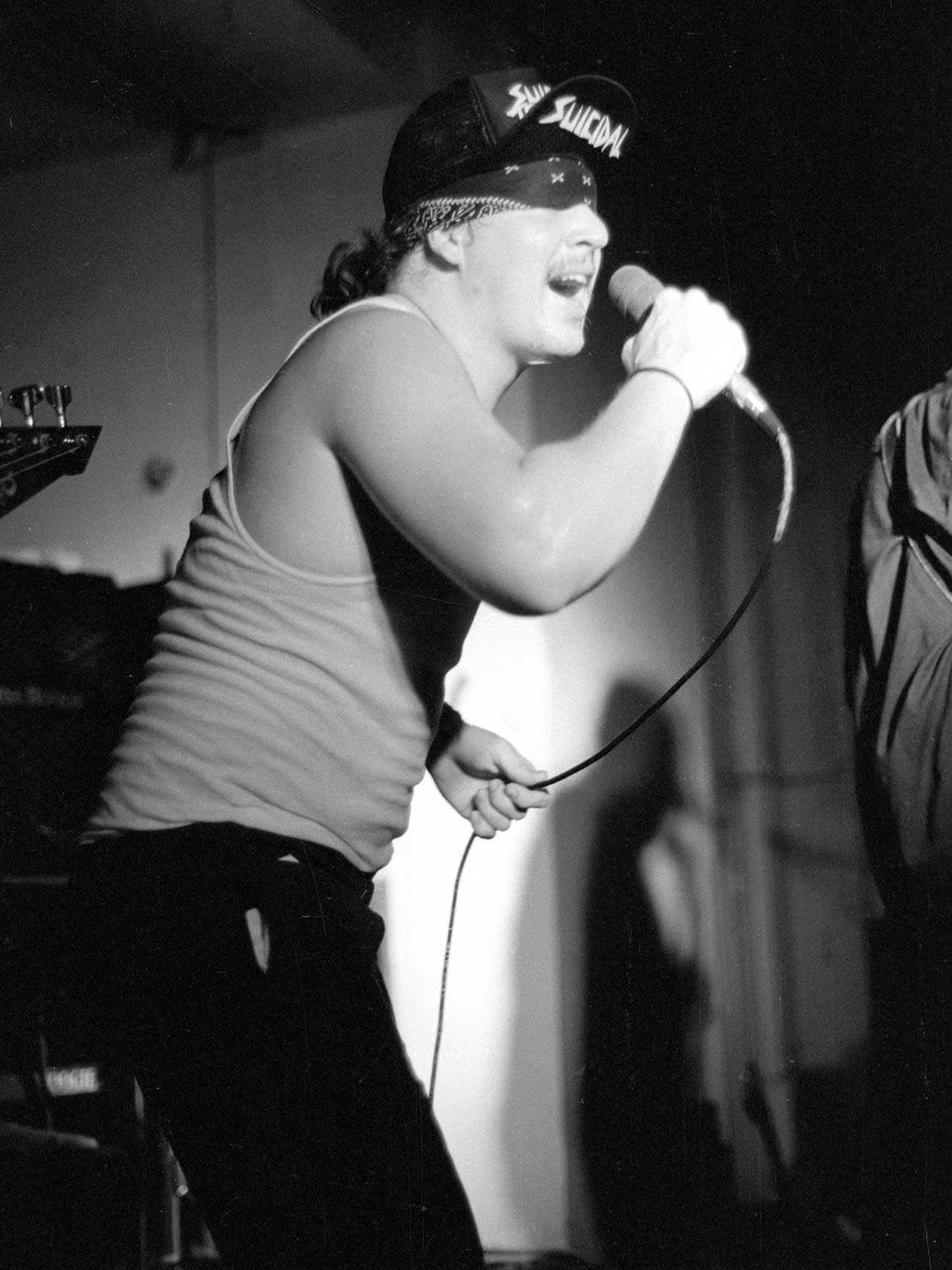
Where did the Suicidal Tendencies look come from?
“The thing about punk rock not mattering how you dress – it did matter to a lot of people. But that’s how we dressed at school, everyone wore Dickies, so we didn’t dress up for shows, we went to shows to discover music that we’d like. People always talk about the embarrassment factor of their first band pictures, and how many bands started as glam bands wearing make-up, but we never did. We weren’t trying to put out an image we thought would be successful, it wasn’t even a thought.
“When people said ‘You’ll never do anything looking like that or do anything with that name’, it never really concerned me. If you’re not gonna like our music because of our name, that’s a statement about you. Of course, as we went on, most record stores wouldn’t carry us because of the name so we had that issue. In the early ‘80s we were presented with the ‘opportunity’ to be signed to a major, if we changed our name, and I wasn’t willing to do that. It wasn’t even a decision. It’s an easy thing to say no to because there was nothing wrong with what we were doing.”
What are your memories of the early Suicidal Tendencies gigs?
“I’m thankful there isn’t a time machine. A lot of people have told me how things were and it’s definitely not the way I remember them. There are a lot of people who say they wish they could go back to these shows and I say ‘No you don’t, you’d be scared shitless’ ha ha! There was a lot more than just music. There was one week where Black Flag played three shows and there was a riot at every show. We were driving round and saw police gathering in the parking lot before one of the shows. They wanted a riot. These were police riots, not punk rock riots. There weren’t cameras and cell phones back then, and the fact was if it did end up on the news they’d say it was a punk rock riot. What can you do when people have all this riot gear on and they start smashing people? You get pissed off. But that’s what’ll be on the news and it’ll be justified.”
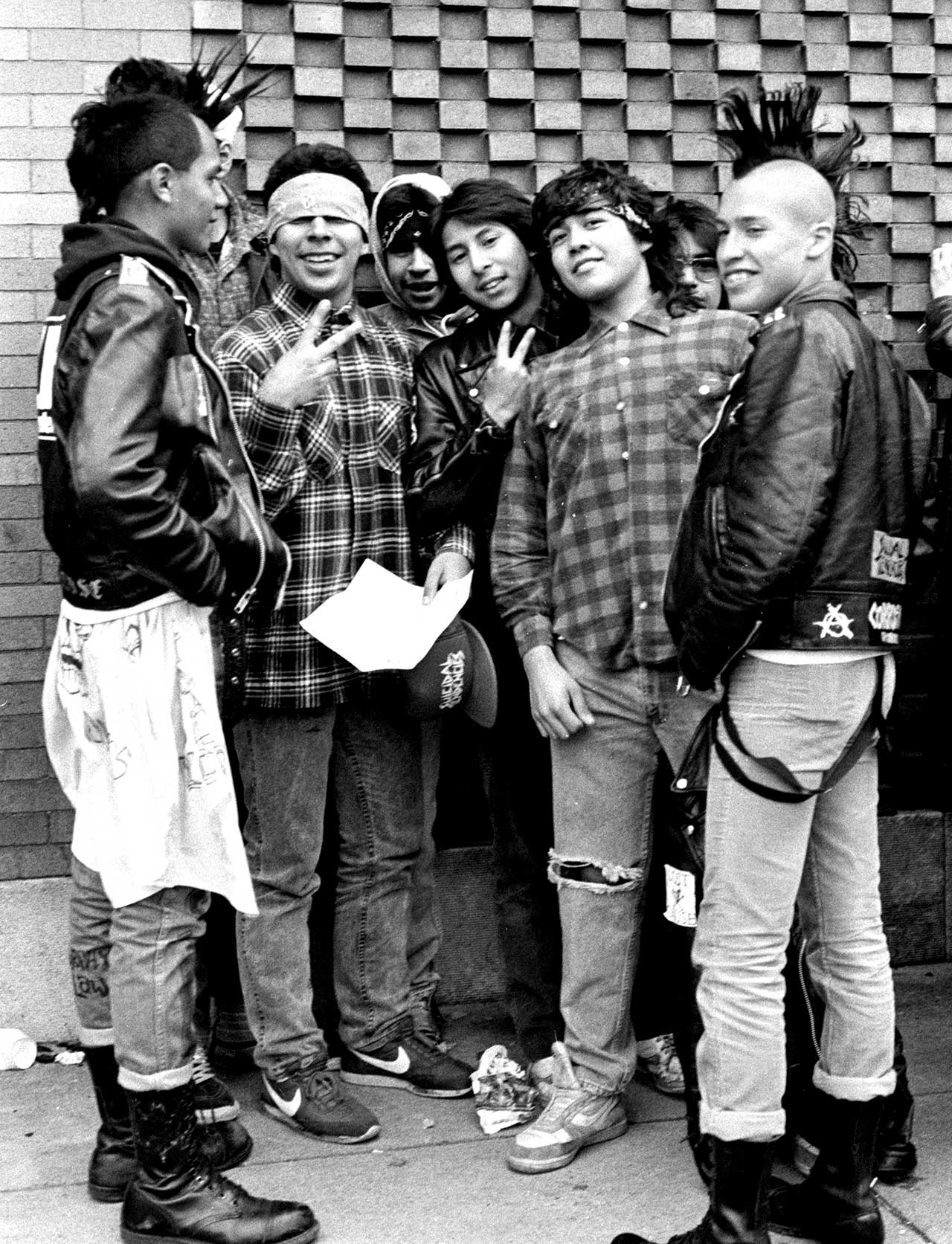
How involved were you in gang culture?
“If you have 10 people who are into Suicidal and 50 people who aren’t, and the 50 try and mess with one person, it doesn’t matter if there’s less of them – they’re not going to take an ass kicking without throwing some punches. Then all of a sudden, they’re a gang. To me that is a bigger issue of society. We always use the term ‘family’ and I believe in that term very strongly. Suicidal is a family and I don’t want other people’s definitions to cloud something that we are. I think it’s important for family to stick together, or to get in someone’s face when they’re doing wrong. If you remove Suicidal from it, and there’s 10 guys fucking with your friend, and you’re 20ft away, do you turn around and run away or do you rush ‘em? Even though the odds aren’t good? Ha ha! That’s the way I’m gonna bring my kids up, I want ‘em to fight. My dad always said the most important fights are with your mind – you’ve gotta be smart. Don’t let fear make you become somebody you won’t be proud of. You’re gonna fight for anything you believe in and you love. If you have nothing to fight for then you’re in trouble.”
- This Is Hardcore: Suicidal Tendencies – Suicidal Tendencies
- Suicidal Tendencies' 12th album to be titled The World Gone Mad
- Suicidal Tendencies stream new track Clap Like Ozzy
- Suicidal Tendencies, Agnostic Front announce European tour
How important is it to you to write about what’s happening right now – politically and societally?
“Everybody has a voice, we’re not trying to get people to follow behind us, we’re trying to make sure people don’t follow blindly. I think the world is best when people create their own paths, and some people have the approach that they’re better than other people, but I think people that are younger are better at their lives than I was at mine. There’s an incredible amount of potential.
“On the new record there’s a song called Dying To Live, and so many times I’ve heard people say they’d die for this and die for that, but have you ever heard someone say ‘Dude, I’m living for this’? I think one reason is to live is a hell of a lot more powerful than ten reasons to die. You need to give people reasons to live and when you have a reason to live then you fight. And when you fight, things get done.”
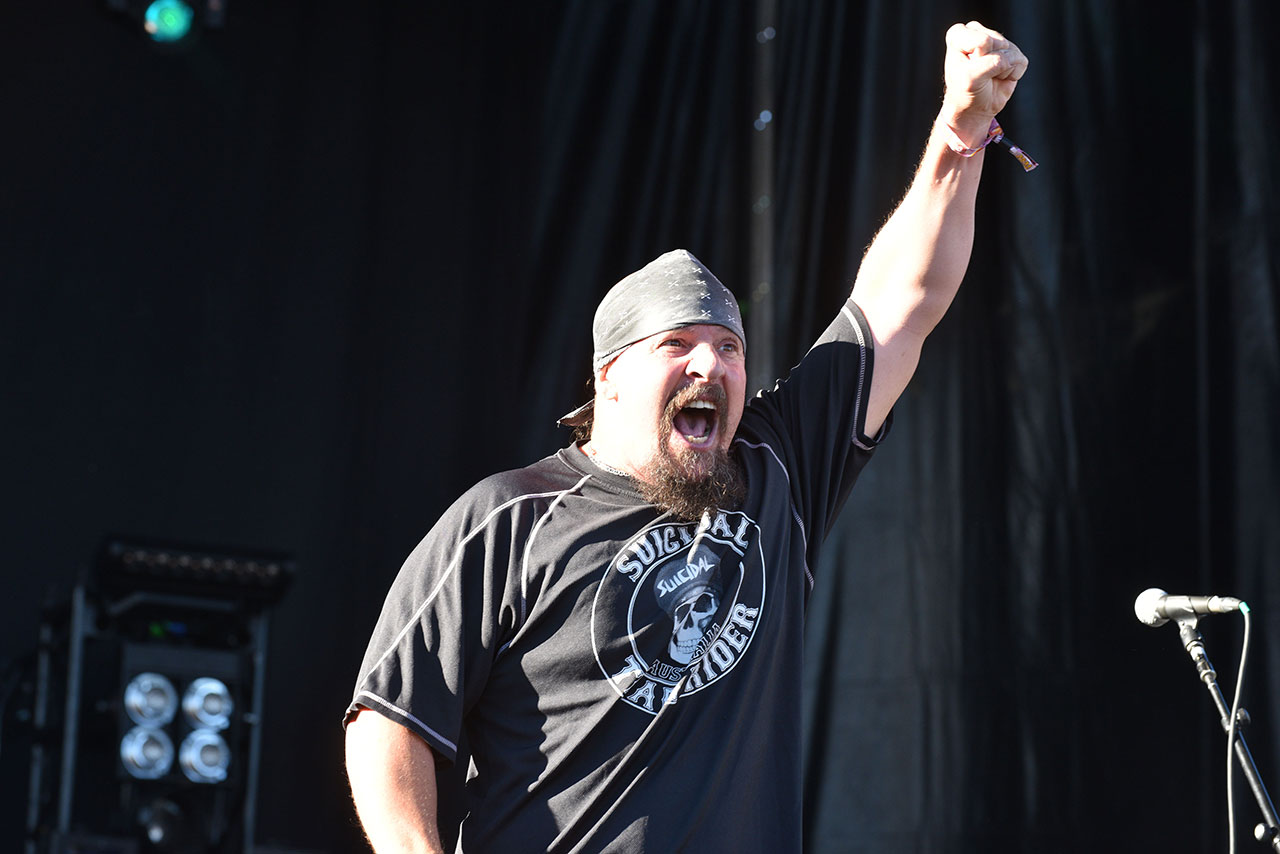
So what are you fighting for?
“Shit is gonna happen. There’s never a good time for bad things to happen, nobody has ever said ‘This is a great time to have a flat tyre’. Bad things happen, that’s life. You meet so many people and you ask what they do, and they say ‘I’m just doing this but I really want to do this’. So you ask ‘Are you going to school, are you going to college?’ and they just say ‘Oh no, that’s really hard’. So what do you do about it? You can never let your intelligence justify your lack of conviction or laziness. You should solve problems and that’s what my dad always taught me.
“When you do something out of passion because it moves you, there’s an honesty there. Nowadays, I understand the internet is an amazing thing, but it’s being misused in a lot of ways. It helps keep me sane when I’m away from home, and bringing the world closer is a brilliant thing, but everybody is trying to put out this facade of what their life is. They’re more concerned about how many likes they’ve got on this life they’re creating instead of thinking about how they’re actually living their life. You’re never going to accomplish anything if you’re trying to make everyone else happy. You have to have a purpose and peripheral vision, but don’t lie to yourself. We’re getting caught up in this fake world and it’s kind of sad in a way.”
Your entire career feels like it has come from this mantra of freedom and doing things for yourselves. How does it feel to have had such freedom that a lot of bands don’t have these days?
“Freedom is something you have to fight for. When we first got label offers we were told to change our name – we weren’t gonna change our name. Then we put out the second record and went top 100, and we had eight labels want to sign us back when there were a lot of labels. We were literally the first band ever to sign to CBS Records and have complete artistic freedom put in the contracts. We didn’t have to submit music for approval, we didn’t have to submit artwork for approval, and if they didn’t accept it then we were off the label. That’s how we were able to put Feel Like Shit… Deja Vu out! Then they said to us, ‘Mike half the stores don’t carry you because of the name Suicidal Tendencies, if you have Feel Like Shit in the title, more of them won’t carry it.’ And I thought, well they can’t double not carry it!
“It’s life, whatever you do. Don’t let anything be a bigger part of your life than it should be. Learn from it and progress to give yourself opportunities, but don’t let it be the end all. Especially in punk rock where there isn’t anything called a career. We took every decision that was important and were offered a lot of opportunities business-wise but we didn’t take them when other people did, and that’s probably the thing I’m most proud of. It wasn’t where I wanted to go. We were constantly battling but it’s something we felt very important about.”
Suicidal Tendencies’ new album World Gone Mad is out September 30, via Suicidal Records.
Suicidal Tendencies stream new track Clap Like Ozzy
Ten Reasons Why Suicidal Tendencies Rule, Yo!
Suicidal Tendencies are 'nothing' in England, says Mike Muir
Luke Morton joined Metal Hammer as Online Editor in 2014, having previously worked as News Editor at popular (but now sadly defunct) alternative lifestyle magazine, Front. As well as helming the Metal Hammer website for the four years that followed, Luke also helped relaunch the Metal Hammer podcast in early 2018, producing, scripting and presenting the relaunched show during its early days. He also wrote regular features for the magazine, including a 2018 cover feature for his very favourite band in the world, Slipknot, discussing their turbulent 2008 album, All Hope Is Gone.
